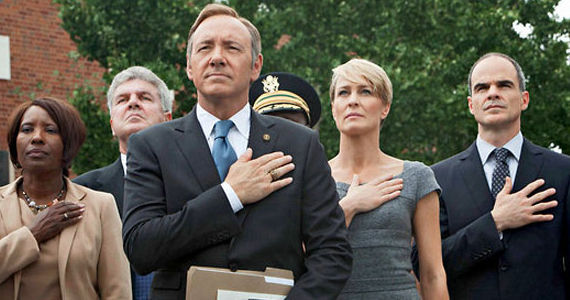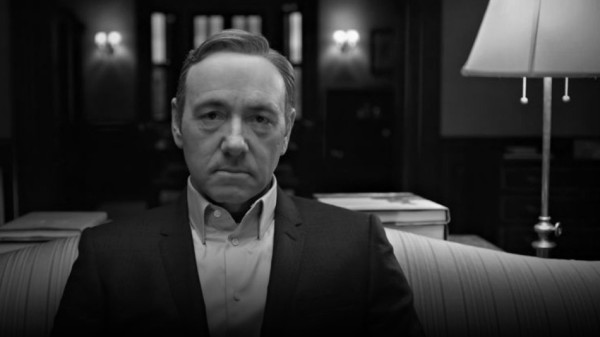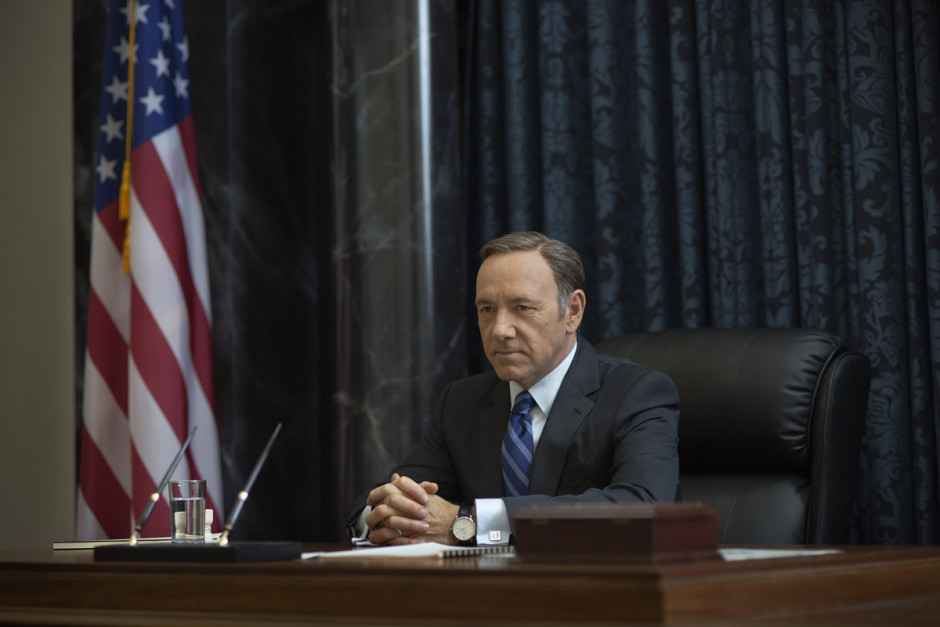The third season of House of Cards, now available on Netflix, is almost as sizzling and compelling as the first two seasons.
Francis Underwood (Kevin Spacey) and his wife, Claire (Robin Wright), are the ultimate power couple. He’s the president of the United States and she’s the first lady. Spacey and Wright, as usual, deliver stunning performances. The rest of the cast, from an alcohol-driven chief of staff who has murder on his mind to a coarse Russian president who plays a mean game of Realpolitk, is just as engaging.

This year’s edition, though, is not quite as razor sharp. Underwood is somewhat subdued compared to his old self. And the plots and schemes he hatches are not as audacious as those he devised while vice-president and congressman.
That said, Underwood is a man in perpetual motion, never letting the grass grow under his feet. As the first of 13 episodes unfolds, he cleverly maneuvers his canny boss out of the Oval Office through a combination of guile and ruthlessness. It’s a brilliant exercise in Machiavellian back room politics.
In one of his typically crisp and cynical asides he reserves for the audience, Underwood prudently observes that presidents must show public displays of humanity while performing their august duties. But in a supreme act of profanity and disrespect, he proceeds to urinate on his father’s tombstone. So much for presidential decorum.
As a boss, Underwood is a tyrant, berating, humiliating and sacking cabinet ministers at will. Claire, his partner and accomplice, is just as ruthless, smart and ambitious. She fails to win Senate confirmation as ambassador to the United Nations, but Underwood hands her the job anyway, creating a possible conflict of interest. Although they’re like two peas in a pod, their marriage deteriorates as the show goes on.

Underwood’s overarching objective is to leave a legacy. With this objective in mind, he comes up with a grand plan to create 10 million jobs in the country. With a presidential election just two years away, he doesn’t have much time to achieve his praise-worthy but self-serving goal. He hires a novelist to pump up his job creation plan, but their collaboration sputters.
One of the more enjoyable subplots turns on Underwood’s shaky relationship with Russia’s president, Petroff (Lars Mikkelsen), an arrogant arch nationalist who distrusts his motives and seems to have a special interest in Claire. They work out a proposal for an international peacekeeping force in the Jordan Valley, but complications set in.
When a U.S. Supreme Court justice succumbs to Alzheimer’s disease, Underwood tries but fails to profit from the tragedy. The candidate he selects to replace him, a tough and independent woman who serves as his solicitor general, is intent on snagging a bigger prize.
Doug Stamper (Michael Kelly), Underwood’s dark and efficient chief of staff, lands up in hospital and is forced to take a leave of absence. During this interregnum, Stamper connives to return to his old position as he continues to search for a young woman who poses a danger to the president.
Underwood replaces Stamper with an edgy African American lobbyist who still has feelings for his ex-lover, now a powerful congresswoman (Molly Parker) whom Underwood seeks to recruit as an ally in his forthcoming presidential campaign. In the final two episodes, Underwood’s relations with Claire sink to a nadir.
House of Cards paints a jaundiced but realistic picture of the American political scene. And while this year’s series is not as consistently taut as the previous ones, it gets better as it moves along, remaining one of the best dramas on television today.
